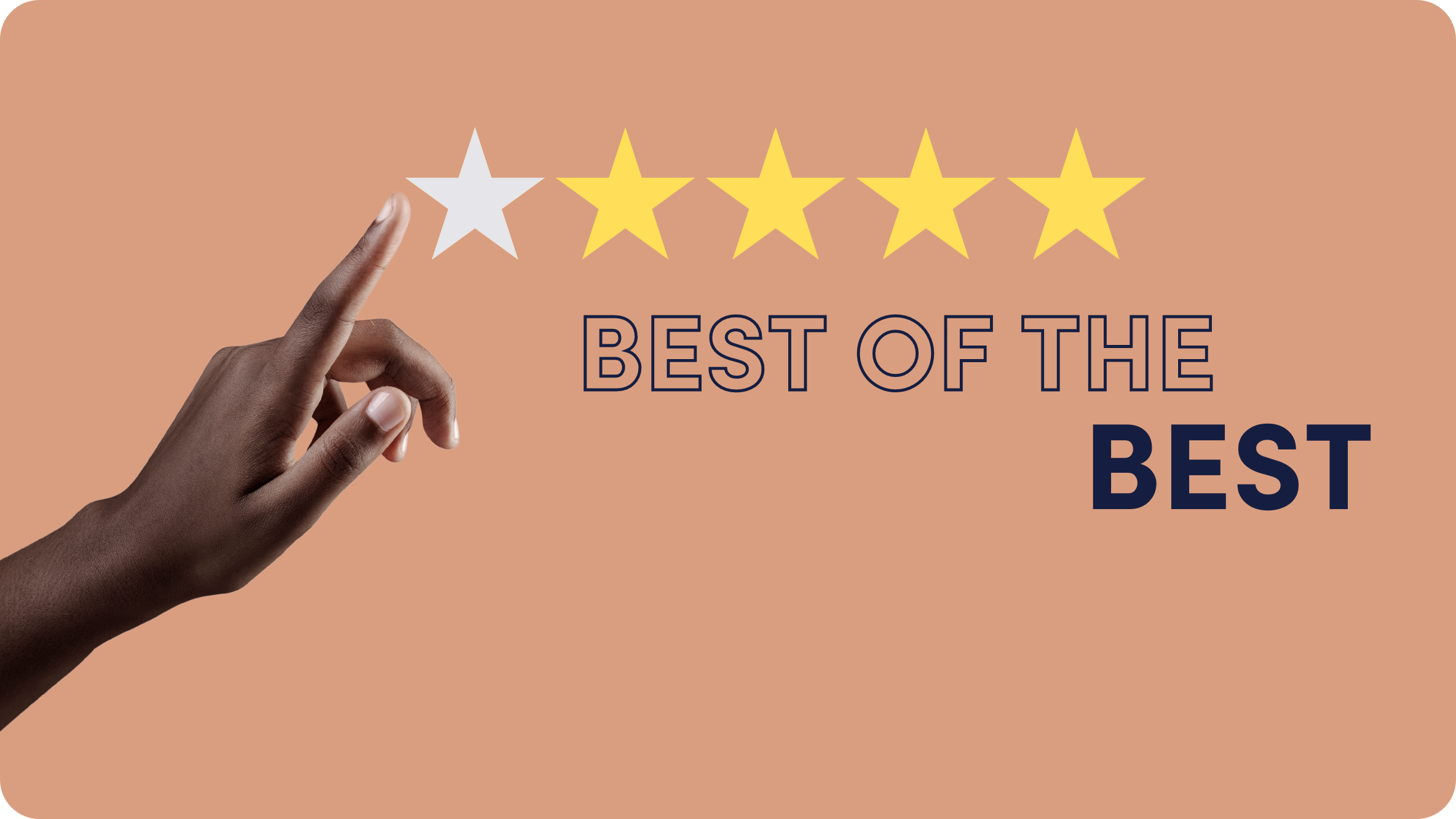Content Marketing Strategies for Small Businesses

Key Takeaways
- Content marketing is a strategy that enables small businesses to challenge the big brands. Substantial success is possible with a more modest budget.
- Businesses have two stories: the brand story and the founder story. The founder’s story is very powerful in the early stages of the business. After the business is established with a customer base, the brand story comes to the forefront.
- Small businesses should shake up their content strategy with a wide range of content types, including SEO-optimized blog posts, lead magnets, and webinars.
- Native advertising is a cost-effective way to capture ad space on popular websites, such as news, entertainment, and sports sites. The target audience will naturally encounter your small business content as they browse their favorite websites.
- Webinars and podcasts are excellent tools for small businesses to promote their content in a more personal and intimate way. Live webinars are an opportunity to interact with the target audience in real-time, while podcasts are the ideal medium to express your unique story and voice.
Small businesses. They are the small fish in a big sea. Swimming among the big brands with even bigger digital marketing budgets makes it hard to stand out from the crowd. But with the right approach, small businesses can successfully challenge even the market leaders, and many are doing just that.
According to Localiq, small businesses typically invest around 5 to 10% of their revenue in digital marketing. The fact is, businesses that know their audience, believe in their product, and deliver the right campaigns at the right time, don’t need enormous budgets to get good ROI for their digital marketing efforts.
What small businesses do need is to distinguish themselves by creating a unique narrative and visual identity. They must connect emotionally with the target audience, and build strong connections with prospective and existing customers. How? By sharing their values and the story behind the business through content marketing.
Every Small Business has Two Stories
A business has not one ‘story’, but two. There is the story of the brand, and the backstory of the founder or owner.
In the early stages after a business is established, consumers tend to connect more with the founder’s story than with the brand story. Founder stories are very compelling. They reflect the unique personal experience of the individual who had a business dream and saw it through to reality. This is something that consumers can relate to, and it is the ideal ‘hook’ to draw customers and tempt them to ‘buy-in’ to the business. Small businesses should integrate the founder’s story into their content marketing strategy, especially when first launching a business and building a customer base.
Once the business is more established and ingrained in the consumer consciousness, the brand story can be leveraged to communicate the values and journey of the business as a whole. Aspects of the founder’s personality and experiences can and should still play a role.
Creating a strong online presence that communicates both business stories is crucial to your success. However, with limited time and resources, creating effective content marketing strategies can be daunting. Fortunately, there are proven tactics that you can implement to enhance your online visibility and attract more customers.
Let’s take a look at the top content marketing strategies that small businesses should be using to meet competitors on the digital playing field.
SEO Blogs
If you want to boost your small business content marketing strategy, incorporating SEO blogs is a must. Blogs are a great way to showcase your brand’s personality, provide relevant information, and establish yourself as an industry expert. At the same time, focusing on SEO will help your blog posts gain visibility in search engines and drive traffic organically to your website.
Remember that it takes time to build SEO value. A great blog post with solid SEO will take a few weeks at least to show its performance.
Here are some small business blogging tips to help you get started:
- Identify topics and keywords that appeal to your target audience and create informative posts around those topics. It is difficult to compete for rankings based on popular or common keywords. Using long-tail keywords is a good strategy for small businesses.
- Incorporate the targeted keywords in the blog post, as well as in the meta descriptions, titles, and headers, to increase your chances of higher rankings. Keywords should be used naturally in the text; keep it conversational and ‘human’-like.
- Add videos, images, and infographics to make your posts visually appealing and easy to digest. The more engaging your blog post is to readers, the more likely they are to interact with it. This indicates to search engines that the blog post is of value and will help increase its ranking.
- Interactive elements are even more engaging and should be used when possible and appropriate. For example, a quiz or poll is a great way to get people to interact with blog content. Also, include a comments section and respond to commenters as soon as possible.
- Put employees or relevant personalities as the blog author. Even if the blog was written by someone else, using the real names of staff members and linking to their social media profiles helps to add authority and authenticity and will encourage higher rankings.
Native Advertising
If you’re looking for innovative ways to expand your small business’s reach, native advertising could be the answer. Native advertising is the practice of promoting branded content that seamlessly integrates with the platform it’s hosted on, providing a more organic and less intrusive experience for the user while still promoting your brand.
Native advertising is highly effective because it’s presented to users in a context that they’re already engaged with. For example, a sponsored article on a popular news site that explores topics relevant to your brand might appear to readers as just another informative piece of content, but with your logo and brand messaging subtly woven in. Native ads have been shown to outperform other forms of PPC advertising, including search ads and social media ads.
Native ads are available on social media platforms, such as Facebook and LinkedIn. These ads fit naturally with the look and feel of the user’s feed. Native search ads appear as sponsored ads at the top of search engine results pages, as “sponsored” results.
Outbrain native ads, on the other hand, appear on the open web, outside of the closed social media networks. With Outbrain, small businesses can reach target audiences on popular websites, such as news, sports, and entertainment sites. Outbrain ads are particularly effective for small businesses because they allow you to target specific audiences with precision, without the need for a huge advertising budget.
Lead Magnets
Lead generation is a key tactic for all businesses, big and small. Ongoing efforts at lead generation help build a constant pipeline of potential customers.
Lead magnets are high-value offers that provide value to your target audience in exchange for their contact information. Small businesses should cultivate the ability to generate great quality, relevant content that can be used as lead magnets. If you are an expert in your niche, or if you offer original perspectives that help the audience find solutions to their problems, or inspire or inform them in some other way, you already have the basis for creating content for effective lead magnets.
It’s all about identifying the uniqueness in your small business story, and packaging it to attract your audience.
Some examples of lead magnets for small business marketing include:
- Ebooks
- Free checklists and templates
- Webinars and tutorials
- Free trial or sample of your product/service
When promoting your lead magnet, make sure the CTA (call-to-action) is prominently displayed on your website or social media channels. You can also use targeted native campaigns to reach your audience and tempt them to provide their contact details in exchange for the content.
Once you have developed a customer list from your lead magnet campaigns, you can begin nurturing them via email marketing, or even reach out to them individually by email or phone call to entice them to purchase your products.
Webinars and Podcasts
Webinars and podcasts can be incredibly valuable tools for small business content marketing. Both of these mediums allow you to connect with your target audience in a more personal and interactive way. This is a very effective way to build trust directly with potential and existing customers and establish your image as an authority in your niche.
Webinars
A webinar is a live, online seminar in which businesses can present information, answer questions, and interact with their audiences in real-time. The key to a successful webinar is to choose a topic that is very hot right now with your target audience. The hotter the topic, the more attention and registrations you will achieve.
When planning your webinar, consider your audience’s pain points and how you can help solve them. Use your expertise to provide insights and advice that they won’t get anywhere else, and that they can use to improve their own lives.
Podcasts
A podcast is a pre-recorded audio program that can cover a wide range of topics, from interviews with industry experts to discussions on current events relevant to your business. Hosting a podcast allows you to establish thought leadership and build brand authority in your industry, while also allowing you to connect with your audience on a more personal level.
When creating a podcast, consider inviting guests to your show who can provide different perspectives and make the conversation more lively and interesting. Podcast guests can also help you attract audiences who may not otherwise have found your podcast, and expose your business to a wider pool of potential customers.
Because of the more intimate and personal format, podcasts can be a great showcase for the founder’s story or behind-the-scenes anecdotes about your business. Use this content marketing strategy to dive deeper into important or exciting topics and to express your angle and voice. This is the way to win over the hearts and minds of your small business audience.
FAQ
Should small businesses do content marketing?
Content marketing is an excellent tool to help small businesses compete with big brands. Any small business can create and promote great quality content among their target audience, and challenge competitors for precious mindshare. Small businesses currently devote 5 to 10% of their revenue to digital marketing.
What is the founder’s story and why is it important for content marketing?
Small businesses should differentiate themselves with the unique story of why the business was established and how the founder realized their dream business. The founder’s story is a relatable and very powerful hook to attract the interest of potential customers.
What are some effective content marketing strategies for small businesses?
Some effective content marketing strategies for small businesses include creating SEO-rich blog posts, social media advertising, native advertising, video marketing, webinars, and podcasts.
How can I incorporate SEO blogs into my small business content marketing strategy?
To incorporate SEO blogs into your small business content marketing strategy, focus on creating valuable, keyword-rich blog posts, optimizing your blog titles and meta descriptions, and promoting your blog posts through social media, native ads, and email marketing.
What are the benefits of native advertising for small business content marketing?
Native advertising offers benefits such as increased brand visibility, reaching a wider audience, and the opportunity to create engaging and relevant content that seamlessly blends with the platform it appears on.
How can lead magnets drive small business content marketing?
Lead magnets, such as e-books, checklists, or exclusive offers, can drive small business content marketing by attracting potential customers and collecting their contact information. This allows you to nurture leads, build relationships, and provide them with valuable content in exchange for their engagement.
How can webinars and podcasts be powerful tools for small business content marketing?
Webinars and podcasts can be powerful tools for small business content marketing as they provide an interactive and engaging platform to share knowledge, establish thought leadership, communicate your founder’s story, and connect with your target audience on a deeper level.











